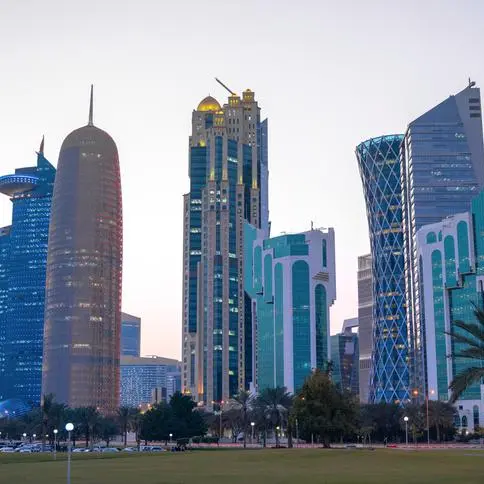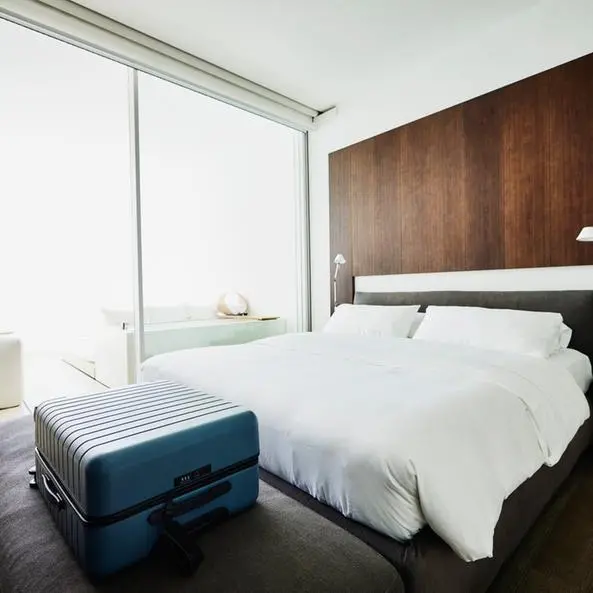PHOTO
Considering the forthcoming supply of hotel rooms, it is estimated that the GCC would require over 90,000 skilled hospitality professionals by 2026 out of which about 82,000 would be required in Saudi Arabia and the UAE, said an industry expert.
“Estimates are based on the assumption that supply would generally be 3-star and above, considering the general industry trend in the region,” added Mansoor Ahmed, Executive Director & Head of Development Solutions, Healthcare, Education & PPP: Middle East & Africa (MEA) Region at professional services firm Colliers.
Ahmed was commenting on Colliers’ report on Hospitality Education in the GCC, which estimates that a total of 0.7 million individuals are employed within the hotels sector in Saudi Arabia and the UAE.
“Furthermore, if the planned mega projects in the holy cities are taken into account, Colliers estimates that these projects would require approximately 50,000 further skilled/trained hospitality professionals by 2030. Furthermore, there are several leisure projects also planned in Saudi Arabia,” he added.
Currently, a significant proportion of staff serving within tourism and hospitality in Saudi Arabia and the UAE are expatriates, with less representation of local professionals especially in technical roles. This creates an opportunity, or rather a necessity, to cultivate local talent and skilled & trained hospitality professionals, in order to meet the snowballing demand for manpower.
Saudi Arabia, as part of a Saudization drive has mandated that at least 30% of the staff employed has to be Saudi. Furthermore, all front desk/managerial roles have to be assigned to Saudi nationals only, however, technical roles are still fulfilled by expatriates.
Key source markets for recruiting staff include Philippines, Egypt, South Asian Sub-continent (India, Pakistan, Nepal). In the UAE, Sri Lankans and Africans also have noticeable presence amongst the workforce within the sector.
As per Euromonitor International’s estimates, there were 894,700 rooms supplied across the GCC in 2021, an increase of nearly 387,000 rooms over the past decade, at a CAGR of ~5.8%. Saudi Arabia and the UAE feature as key markets in the region with 70% of the supply concentrated in Saudi Arabia to meet the growing demand for pilgrims visiting the holy cities of Makkah and Madinah, and the UAE accounting for 23% of the entire GCC’s supply.
It is estimated that over 100,000 rooms would be supplied across the GCC by 2026, with the total supply estimated to exceed 1 million rooms - the large majority being supplied in Saudi Arabia followed by the UAE. Furthermore, in addition to the aforementioned units, an additional 110,000 units are estimated to be added in the holy cities by 2030 to cater to the demand from pilgrims.
Current supply / demand for tourism and hospitality education in key GCC markets
Saudi Arabia
Given the forthcoming supply and the government’s vision of enhancing the hospitality and tourism sector, the Government, via the Ministry of Education (Higher Education) and Technical and Vocational Training Corporation (TVTC), has undertaken an initiative to establish dedicated hospitality academies and introduce hospitality and tourism related programmes in public universities.
This has acted to the detriment of private sector players to the extent that a few private institutes have been forced to shut part of their network or shut down completely. Furthermore, in a bid to attract students to public sector providers, the government withdrew financial support to Saudi students enrolled at private institutes rendering these private sector institutes unaffordable for the majority, while students enrolled are also offered monthly stipends.
Therefore, the provision is largely dominated by the public sector. However, enrolment in the field of study is still low. Based on the most recent information, nearly 5,500 students were enrolled in tourism and hospitality related courses across higher education institutes (HEIs) in the Kingdom representing only 0.3% of the total enrolment in HEIs across the country.
In Saudi Arabia, there is lack of technically qualified staff with major shortages in culinary, kitchen, F&B, and sales. Very few job applicants have hospitality related qualifications and are mostly graduates and diploma holders in other fields.
Saudis are becoming keen to seek roles in the field of hospitality as demand grows. However, a lack of skill and preference to directly get into managerial and front office roles is a challenge as candidates generally lack training for these roles.
One of the main challenges being faced is that the profession, and more specifically for technical roles, are perceived to be of low social status amongst the local population.
In addition, Saudi Arabia is not a preferred regional/international destination for higher education, which limits the potential for international students.
United Arab Emirates
The education provision in the UAE is largely privatised. There are four specialist private tourism and hospitality institutes offering courses and training in the sector, collectively enrolling 609 students across various undergraduate and post-graduate programs, constituting 1.7% of the total enrolment in private/nonfederal HEIs.
While the issue of perception and associated low social status is somewhat applicable in the UAE as well, the high cost of completing a hospitality degree in the UAE, and low eventual returns also deters students from pursuing hospitality as a career.
Tourism and hospitality remains a niche field of study in the region. In addition, disruption caused by the Covid-19 pandemic to the industry has also raised concerns regarding the industry’s career / employment potential which has cautioned students enrolled or who were contemplating pursuing tourism and hospitality as a sector.
Some expect that students may exercise greater caution or reconsider tourism and hospitality as a career in the short-term, however, a large proportion of students, faculty and industry personnel remain optimistic as the sector shows signs of rebound as the pandemic gradually fades away.
The successful completion of mega-events such as Expo 2020 has further instilled traveller confidence and consequently restored hope for the industry.
Copyright 2022 Al Hilal Publishing and Marketing Group Provided by SyndiGate Media Inc. (Syndigate.info).





















